After consideration and research I have changed my recommended Northern Lights / Forecasting App to Aurora-Alerts. This review is for their paid app (i.e. worth a few dollars). My annotated screenshots given later in this blog post show the interface and explain functionality. I like the clean, easy to follow user interface. The alerts work fine and are updated twice per hour.
Aurora-Alerts is available for Apple or Android devices. See their web site to learn more, or download / install a local copy. I also have SpaceWeatherLive’s app installed on my devices and receive their alerts. While I love their alerts and news, I suspect their app would be very confusing to a person who is not real knowledgeable about the Northern Lights. As always, I do NOT receive any money for my reviews & recommendations.
The Northern Lights Lake Superior Region Facebook Group which I founded and where I am one of the two admins has over 6,000 members. This Facebook Groups helps one know when lights are expected to be active near Lake Superior, and enjoy photographs of the Aurora taken from the local region (i.e. not Alaska or Norway, etc.). A Facebook account is required to join / read posts in the group.
Finally, don’t forget to read the Northern Lights page of this blog. It has many helpful explanations and links concerning the Northern Lights.
Aurora-Alerts Splash Screen (current conditions)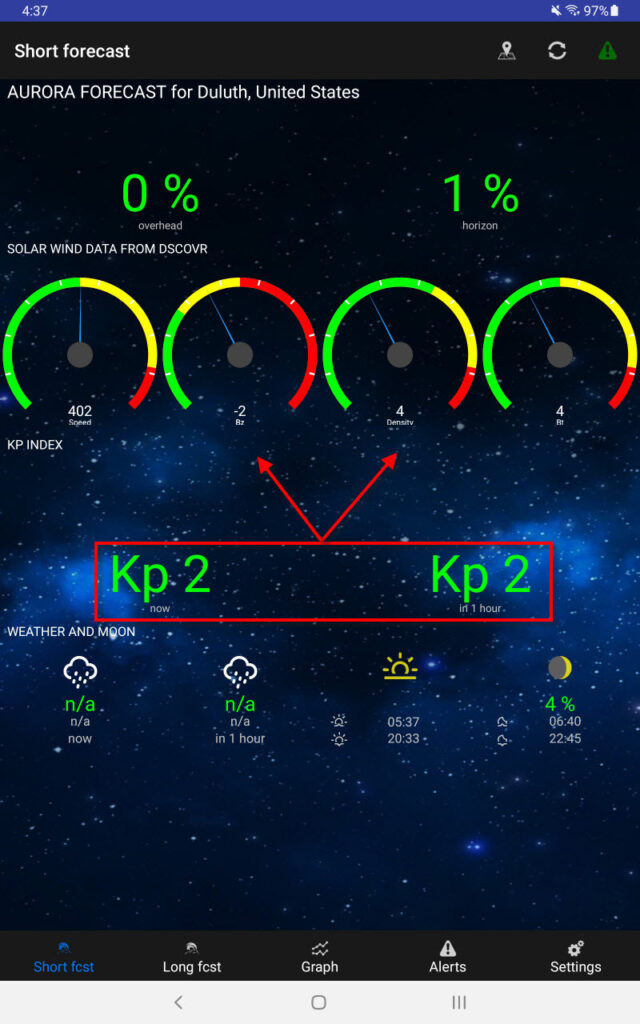
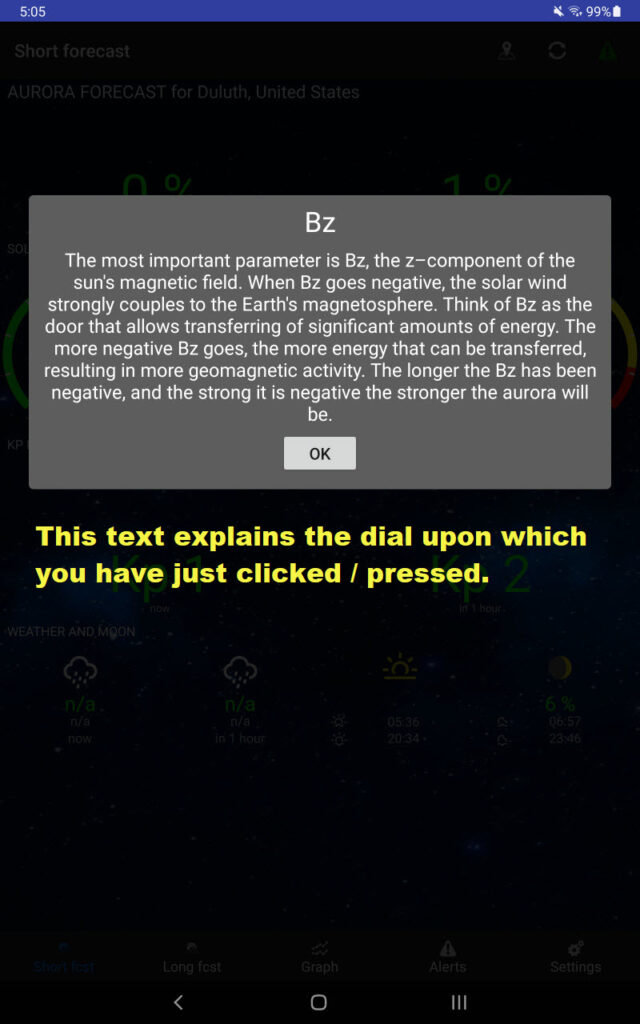
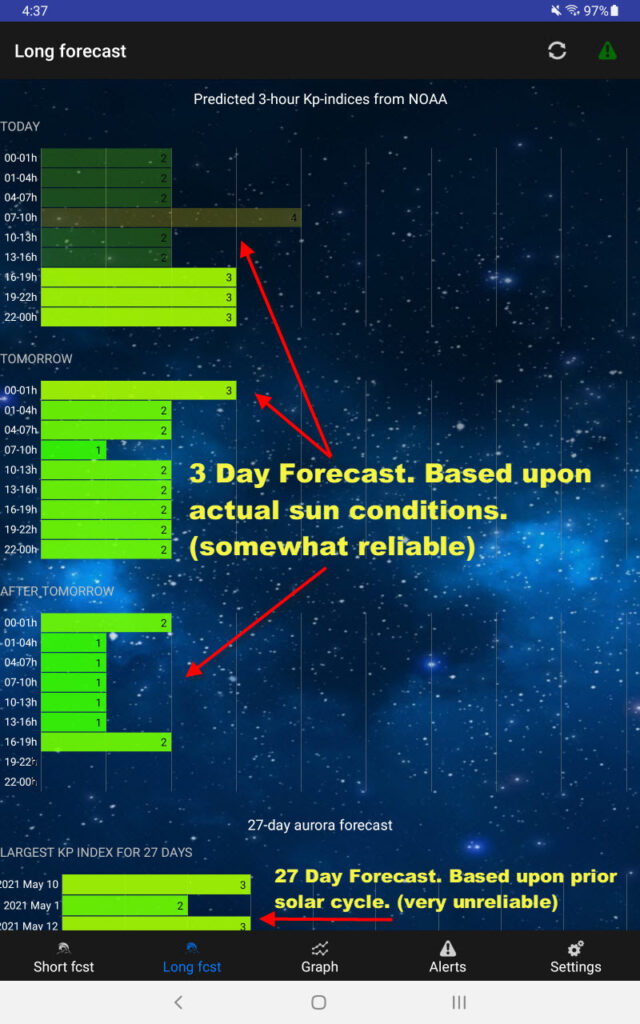
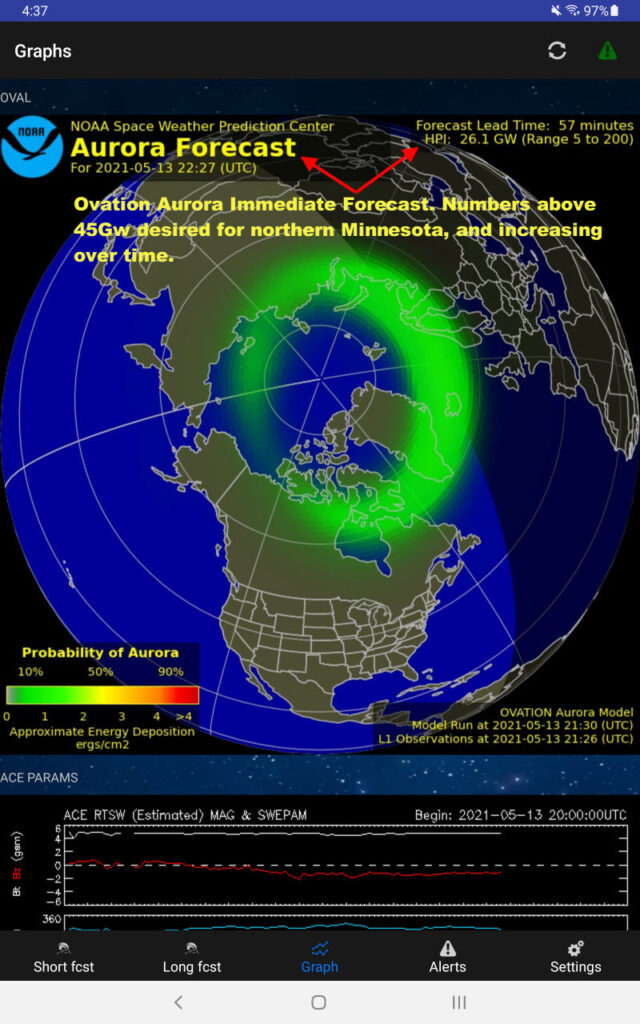
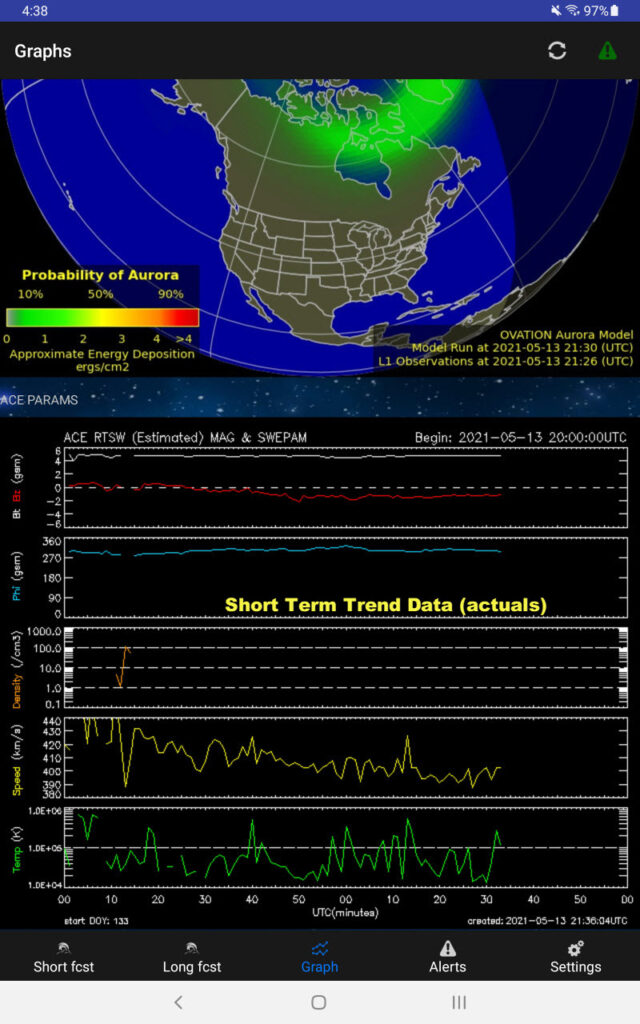
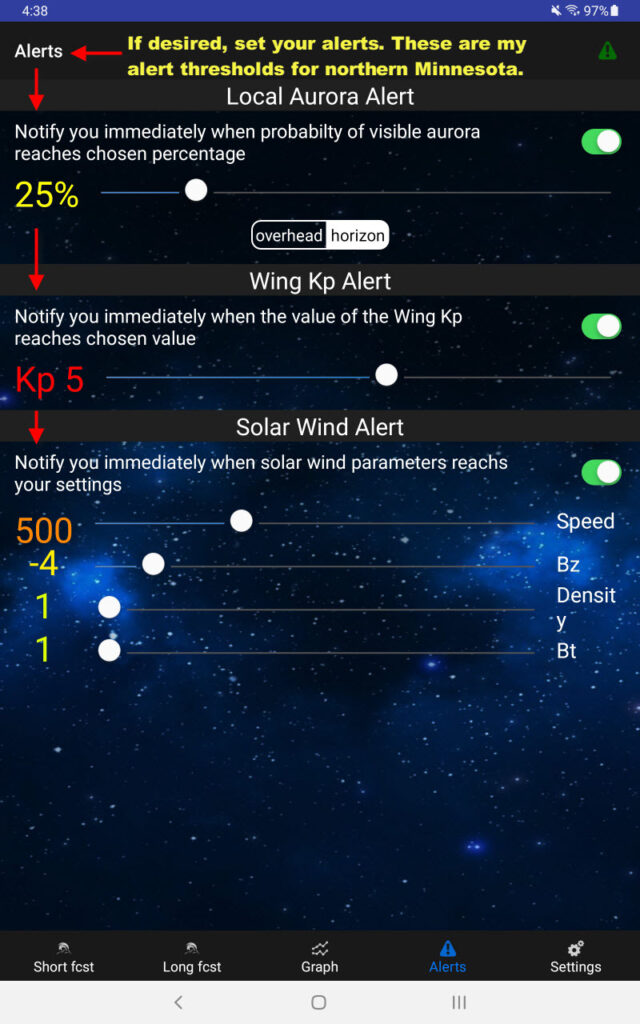
Is the 3-day forecast in local time or UTC? Thanks.
It depends … some apps including the one I recommend on this page if you allow location tracking will update your time to your local time zone, but others are UTC. Regardless, almost all will have an indication as to whether UTC or a local time zone is being used.
So after reading blog I’m still not sure if they’ll be out tonight Sunday night. Will they.
There is never any guarantee in answer to your question. The tools on my Northern Lights page allow you to be informed, and Ovation Aurora is the tool with the shortest lead time. Even given all of that one spends a lot of nights out in the back country where nothing happens. No one can answer your question, not even NASA or NOAA. The tools gather the basic data and attempt to predict.